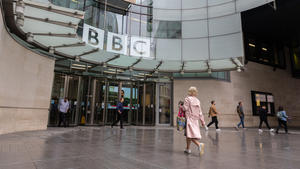The UK government's Department For Culture, Media & Sport last week announced the launch of a review into how the BBC should be funded in the future.
Supported by a "panel of independent experts", the review - the government said - "will look at how alternative models could help secure the broadcaster’s long-term sustainability amid an evolving media landscape, increased competition and changing audience behaviour, while reducing the burden on licence fee payers".
Back in January 2022, then Culture Secretary Nadine Dorries basically said on Twitter that the licence fee that currently provides the BBC with most of its funding would be abolished when the broadcaster's current Royal Charter expires at the end of 2027.
The current Conservative government is being somewhat less bombastic. And it's generally thought that any future Labour government would be more sympathetic to the idea of the current licence fee model continuing beyond 2027.
That said, with an increasing number of consumers relying primarily on streaming services and social media for content and entertainment, a significant revamp of BBC funding at some point is inevitable. Indeed, BBC management may ultimately seek to take the lead on that.
The announcement of the BBC funding review accompanied confirmation that next year's increase in the licence fee will be less than orignally expected. The licence fee was frozen in 2022 meaning that, in real terms, the BBC's annual income was declining. Inflationary increases were then due to resume each year from 2024.
That is still happening, however the method employed to calculate the inflationary increase has been tweaked. As a result the licence fee will increase by £10.50 a year. The price rise was previously expected to be at least £15.
Culture Secretary Lucy Frazer said: “We know family budgets are stretched, which is why we have stepped in again - following two years of licence fee freezes - to reduce this year’s increase to less than a £1 a month".

